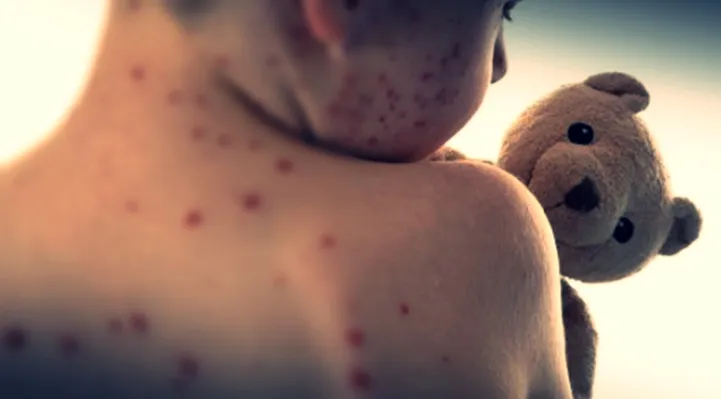Mongolia Reports Over 200 Cases of Measles

Synopsis
Key Takeaways
- 220 cases of measles reported in Mongolia.
- Most cases are among school-aged children with incomplete vaccination.
- Vaccination is crucial for prevention.
- Measles can lead to severe complications and death.
- Global vaccination efforts have saved millions of lives.
Ulan Bator, April 2 (NationPress) The number of reported measles cases in Mongolia has risen to 220, as confirmed by the National Center for Communicable Diseases (NCCD) on Wednesday.
Most of the recent infections have occurred in school-aged children who have received only one dose of the measles vaccine, according to a statement from the NCCD.
The NCCD has urged parents to safeguard their children against this potentially serious illness by ensuring they receive two doses of the measles vaccine, as reported by Xinhua news agency.
As per the World Health Organization, measles is an extremely contagious illness caused by a virus. It spreads easily through the air when an infected individual coughs, breathes, or sneezes. The disease can lead to severe health complications and even fatalities.
While measles can affect individuals of all ages, it is particularly prevalent among children.
The virus targets the respiratory system before disseminating throughout the body. Symptoms include a high fever, cough, runny nose, and a widespread rash. Any individual lacking immunity (either unvaccinated or vaccinated without developing immunity) is susceptible to infection. Young children who are not vaccinated and pregnant women are at the highest risk for severe measles complications.
Vaccination is the most effective method to prevent both contracting and transmitting measles. The vaccine is safe and equips the body to combat the virus.
Prior to the advent of the measles vaccine in 1963 and its widespread administration, significant epidemics occurred approximately every two to three years, leading to an estimated 2.6 million deaths annually.
In 2023, approximately 107,500 individuals died from measles, predominantly children under five, despite the existence of a safe and affordable vaccine.
Intensified immunization initiatives by various nations, the WHO, the Measles & Rubella Partnership (previously known as the Measles & Rubella Initiative), and other global partners have effectively prevented an estimated 60 million deaths from 2000 to 2023. Vaccination has reduced measles mortality from around 800,062 in 2000 to 107,500 in 2022.










